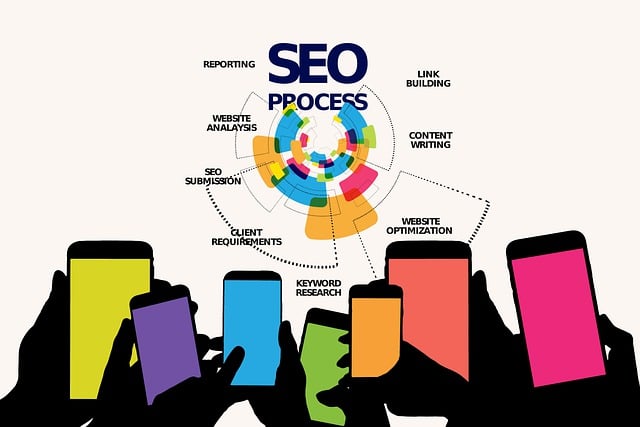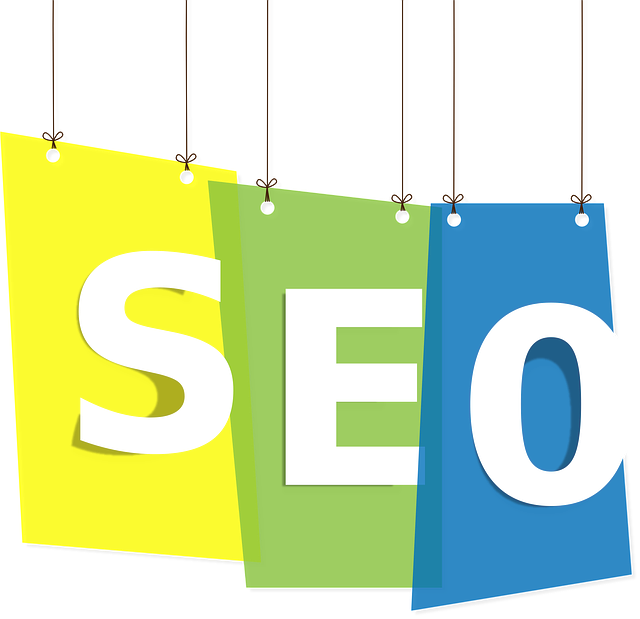Search Engine Optimization (SEO) is a multifaceted strategy that boosts business success in the digital age by:
Increasing online visibility and reaching wider audiences.
Driving organic traffic through targeted content tailored to user intent.
Boosting brand awareness and building a strong, authoritative online presence.
Improving conversion rates and ultimately increasing return on investment (ROI).
Key components of effective SEO include:
Keyword research: Identifying relevant search terms for targeted content.
On-page optimization: Optimizing website elements for better user experience and search engine rankings.
Off-page strategies: Building quality backlinks to enhance website authority.
Technical SEO: Ensuring a seamless user experience through mobile friendliness, fast loading times, and error-free navigation.
Measuring KPIs like organic traffic growth, keyword rankings, CTRs, average position, and conversion rates is crucial for optimizing SEO strategies and maximizing ROI. Continuous optimization, staying informed about algorithm changes, and monitoring competitor activity are essential practices for sustained SEO success.
In today’s digital era, the benefits of Search Engine Optimization (SEO) are undeniable. Understanding and leveraging SEO can significantly boost business growth by increasing online visibility and driving higher ROI. This article guides you through the crucial components of a successful SEO campaign, from keyword research to technical optimizations. By exploring on-page, off-page, and technical SEO strategies, we’ll equip you with the knowledge to navigate the dynamic landscape and unlock maximum exposure for your business.
Understanding Search Engine Optimization (SEO) and its Impact on Business Growth

Search Engine Optimization (SEO) is a powerful strategy that has become an indispensable tool for businesses aiming to thrive in today’s digital landscape. By optimizing websites and content, companies can significantly enhance their online visibility and reach a wider audience. SEO involves a range of techniques designed to improve search engine rankings, ensuring that a business appears at the top of results when potential customers search for relevant products or services. This strategic approach has far-reaching benefits for businesses, as it drives organic traffic, increases brand awareness, and ultimately boosts revenue.
The impact of effective SEO is profound, as it enables businesses to tap into a vast pool of potential customers actively searching for solutions online. By understanding user intent behind search queries, SEO strategies can deliver targeted content that satisfies both the search engines and the users’ needs. This results in improved conversion rates, higher customer retention, and increased return on investment (ROI). With consistent optimization, businesses can stay ahead of the competition, adapt to market trends, and establish a strong online presence, solidifying their growth potential in an increasingly digital world.
Unlocking Higher ROI: The Power of Effective SEO Strategies

Unlocking Higher ROI: The Power of Effective SEO Strategies
In today’s digital landscape, Search Engine Optimization (SEO) is no longer an optional strategy; it’s a critical component for any business aiming to achieve higher returns on investment (ROI). By focusing on the benefits of SEO, companies can tap into a vast and often untapped customer base. When implemented effectively, SEO strategies enhance online visibility, driving targeted traffic to websites. This ensures that every click has a purpose, as businesses attract potential customers who are actively searching for their products or services.
The true power of SEO lies in its ability to provide long-term value. Unlike costly advertising campaigns with finite reach, effective SEO builds a solid foundation for sustained growth. By optimizing web content and structure, companies can improve user experience, encourage longer browsing sessions, and foster higher engagement rates. This translates into increased conversions, stronger brand recognition, and a competitive edge in the market, ultimately leading to substantial ROI.
Key Components of a Successful SEO Campaign

A successful SEO campaign hinges on several key components that collectively drive up your website’s visibility and attract a higher ROI. Firstly, understanding your target audience is paramount. Conducting thorough keyword research allows you to identify terms and phrases your potential customers are using to search for products or services similar to yours. Incorporating these keywords naturally into your website content not only enhances searchability but also resonates with your audience’s intent.
Secondly, creating high-quality, engaging content that provides real value to your visitors is crucial. This includes well-optimized meta titles and descriptions, compelling headlines, and informative, yet visually appealing, content that encourages longer browsing sessions. Additionally, building a robust backlink profile through strategic outreach and earning quality backlinks from reputable sources signals to search engines that your website is an authoritative source, further boosting its rankings and driving organic traffic.
Keyword Research: Finding the Right Terms for Maximum Exposure

Keyword research is a fundamental step in any successful SEO strategy, as it involves identifying the terms and phrases that potential customers use when searching for products or services related to your business. By understanding user intent behind these keywords, you can tailor your content to deliver maximum value and relevance. This process not only helps in optimizing your website’s visibility on search engines but also ensures that your marketing efforts reach the right audience.
The benefits of search engine optimization (SEO) extend far beyond increased website traffic. Effective keyword research enables businesses to focus on high-value keywords with lower competition, leading to better rankings and higher return on investment (ROI). It also allows for creating content that resonates with your target audience, fostering trust and engagement, which ultimately contributes to long-term business growth.
On-Page SEO: Optimizing Your Website for Better Rankings

On-Page SEO is a critical component in maximizing your website’s potential and achieving higher ROI through Search Engine Optimization (SEO). This strategy involves optimizing individual web pages to rank higher on search engine result pages (SERPs), thereby driving more organic traffic to your site. By focusing on on-page factors, you ensure that your content is not only search-engine-friendly but also highly relevant and valuable to your target audience. This includes optimizing title tags, meta descriptions, header tags, URL structures, and content itself with strategic keyword placement.
Engaging in effective on-page SEO offers numerous benefits, such as improved visibility, better user experience, and increased chances of ranking for competitive keywords. When search engines crawl your website, they analyze these elements to understand the context and quality of your pages. Optimizing them encourages search engines to index your site more accurately, resulting in higher rankings over time. Ultimately, this leads to enhanced online presence, more qualified leads, and ultimately, a significant boost in ROI for businesses leveraging its power.
Off-Page SEO: Building Quality Backlinks and Enhancing Authority

Off-Page SEO focuses on strategies outside your website to improve search engine rankings and drive higher ROI. One of the key aspects is building quality backlinks, which act as votes of confidence from other reputable websites. When high-authority sites link to yours, it signals to search engines that your content is valuable and trustworthy. This, in turn, enhances your website’s authority and increases its visibility in search results.
Quality backlinks can be acquired through various means, such as guest blogging on influential sites, creating shareable content that naturally attracts links, or engaging in outreach to build relationships with industry influencers. By focusing on these off-page tactics, you can significantly boost your SEO efforts and reap the benefits of improved search engine rankings, increased organic traffic, and ultimately, a higher return on investment.
Technical SEO Considerations for Seamless User Experience

In the realm of Search Engine Optimization (SEO), Technical SEO considerations are a cornerstone for reaping the benefits of Search Engine Optimization and ultimately achieving higher Return on Investment (ROI). A seamless user experience is paramount; ensuring websites are mobile-friendly, load swiftly, and exhibit minimal errors. These factors not only enhance user satisfaction but also signal to search engines that the site is reliable and worthy of high rankings.
By addressing technical SEO aspects, businesses can facilitate easier navigation for both users and search engine crawlers. This includes optimizing website structure, ensuring proper use of headings, meta tags, and alt text, as well as implementing structured data markup. Such optimizations collectively contribute to better indexing, increased visibility in search results, and ultimately, higher conversion rates—all crucial elements for unlocking the full potential of SEO efforts and maximizing ROI.
Measuring SEO Success: Tracking Key Performance Indicators (KPIs)

Measuring SEO success is paramount for understanding the benefits of search engine optimization and driving higher ROI. Tracking Key Performance Indicators (KPIs) allows businesses to quantify their efforts, identify areas of improvement, and make data-driven decisions. Essential KPIs include organic traffic growth, keyword rankings, click-through rates (CTRs), average position, and conversion rates. By analyzing these metrics, companies can assess the effectiveness of their SEO strategies, pinpointing which tactics are driving the most valuable leads and conversions.
For instance, a steady increase in organic traffic indicates that SEO efforts are improving visibility and attracting more potential customers. Higher keyword rankings mean better search engine visibility for targeted terms, leading to increased brand awareness. Monitoring CTRs helps identify high-performing content and optimize lower-performing pages. Ultimately, aligning KPIs with business goals ensures SEO strategies remain focused on delivering tangible results – the ultimate goal of enhancing ROI through effective online marketing.
Continuous Optimization: Staying Ahead in the Dynamic SEO Landscape

In the ever-evolving digital landscape, continuous optimization is a key strategy to stay ahead in Search Engine Optimization (SEO). The benefits of SEO are manifold, from increased visibility and higher organic search rankings to driving targeted traffic and boosting brand awareness. However, what sets apart successful businesses is their willingness to adapt and refine their SEO strategies regularly. By staying updated with algorithm changes and industry trends, companies can ensure their online presence remains optimized for maximum return on investment (ROI).
Dynamic SEO requires a proactive approach. Regular keyword research, competitor analysis, and content optimization are essential practices. Businesses should also monitor performance metrics like click-through rates, bounce rates, and time spent on site to identify areas of improvement. Through continuous optimization, companies can stay relevant, attract more valuable organic traffic, and ultimately achieve higher ROI in their digital marketing efforts.
